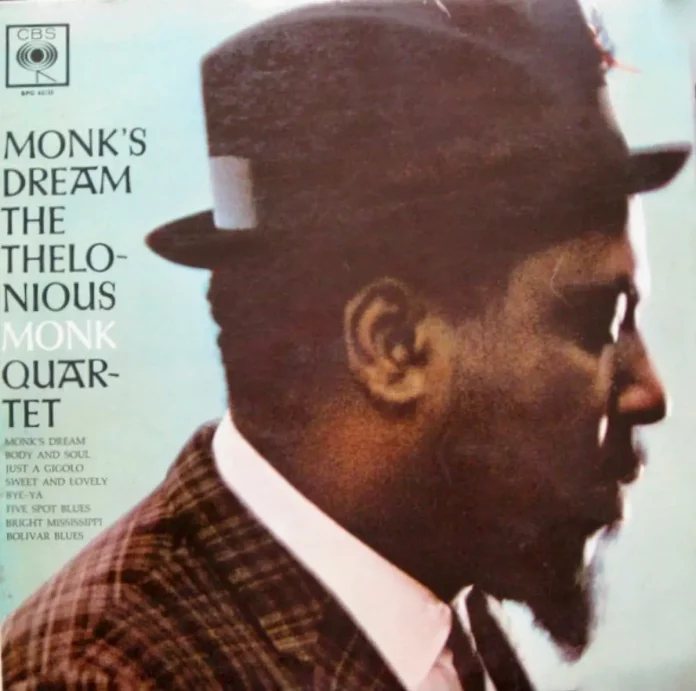After several years’ self-imposed monastic seclusion, Monk is back on the recording scene. The personnel of the quartet is unaltered from the one which toured Britain with the Messengers two or three years ago, and Monk’s habit has changed little in the meantime.
Charlie Rouse continues to give wonderful support – mirroring Monk’s eccentricities as no other tenorist could probably do (all the more commendably so since, to judge from his performance on a recent Benny Carter album, this is by no means a style which comes naturally to him) – but the fussy Frankie Dunlop and the indeterminate John Ore just make up the numbers.
The tunes are all simple melodic sketches by Monk (two blues, a “Sweet Georgia”, and two “AABA” 32-bars), except for the ballads “Body and Soul” and “Just a Gigolo”, which he plays as unaccompanied piano solos, and a harmonically distorted “Sweet and Lovely” by the entire company. There is some Yancey influence in “Five Spot” and a strangely dated “vamping” left-hand in the piano solos, otherwise Monk is the same as ever – completely unique. Since it is fashionable these days to liken jazzmen to painters, I nominate him as the “Henri Rousseau” of jazz – a musical primitive whose work is strong in literary content.
Still preoccupied with the avoidance of triteness, Monk plays like a man without the memory faculty. One feels that he is always composing, never merely improvising, and he seems to be increasingly obsessed with the acoustical properties of his instrument. The way in which he takes time off to linger over some self-satisfying dissonance makes it only too clear that the listener is of absolutely no account. “Communication” is a word which cannot belong in the Monk vocabulary.
I would not dare to deliver judgment on the quality of the music. Assessing Monk must inevitably be a personal matter, and the best and worst of the man will always be inseparable. I only know that I found him, at different times, fascinating, frustrating, amusing and boring. One thing is certain; no other jazz musician makes such great demands on the patience of his listener and gets away with it.
Discography
Monk’s Dream; Body And Soul; Bright Mississippi; Five Spot Blues (21 min) – Bolivar Blues; Just A Gigolo; Bye-Ya; Sweet And Lovely (22 min)
Thelonious Monk (p); Charles Rouse (ten); John Ore (bs); Frankie Dunlop (d). 4 sessions between 31st Oct. and 6th Nov., 1962.
(CBS BPG 62135 12inLP 33s. 1d.)
















